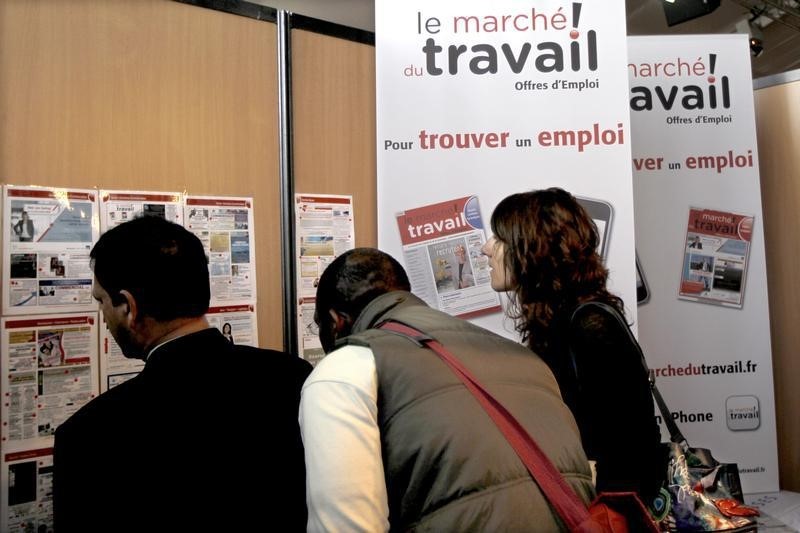By Jonathan Cable
LONDON (Reuters) - Euro zone businesses kicked off 2018 in much better shape than anyone polled by Reuters expected, ramping up activity at the fastest rate since the middle of 2006, a survey showed on Wednesday.
The upturn was driven by a strong performance in the bloc's dominant service industry, where new business flooded in at a rate not seen in over a decade. That will cheer the European Central Bank as it moves towards tighter monetary policy.
IHS Markit's composite flash Purchasing Managers' Index (PMI) for the euro zone jumped to 58.6 this month, its highest since June 2006 and confounding the median forecast in a Reuters poll for a dip to 57.9 from a final December reading of 58.1.
Anything above 50 indicates growth and the preliminary reading was higher than any estimate given by the 33 economists Reuters polled.
"The PMI adds to the list of positive January indicators. We believe 2018 could again be a year in which euro zone growth beats expectations," said Bert Colijn at ING.
Consumer confidence jumped much more than expected this month to a 17-year high, a flash estimate from the European Commission showed on Tuesday, further underlining the momentum in an economy growing at its fastest in a decade.
French business activity was stronger than expected and Germany's private sector continued to grow robustly in January, according to earlier data, showing the bloc's two biggest economies had a strong start to 2018.
IHS Markit said if maintained the euro zone PMI pointed to first quarter GDP growth of 1.0 percent, much faster than the 0.6 percent predicted by a Reuters poll last week.
In other good news for ECB policymakers, who have failed for years to get inflation up to where they want it, price pressures increased. The output prices sub-index bounced to 54.6 from 53.2, a level not seen for almost seven years.
"On the face of it, the data strengthen the case for the ECB to 'revisit' its forward guidance early this year, as it has hinted it will," said Jessica Hinds at Capital Economics.
"But with core inflation still subdued and the euro continuing to strengthen, we expect that the ECB will tread very cautiously at tomorrow's (Thursday's) meeting."
Earlier this month, the ECB signalled a growing appetite for revising its policy message in "early" 2018. But it is unlikely to ditch a pledge to keep buying bonds at Thursday's meeting as rate setters need more time to assess the outlook for the economy and the euro, three sources close to the matter said.
The U.S. dollar hit fresh lows on Wednesday following the PMI data and after U.S. Treasury Secretary Steven Mnuchin said he welcomed the greenback's weakness.
SERVICES STRENGTH
The PMI covering the bloc's dominant service industry bucked a forecast for a slight dip to 56.4, instead rising from December's 56.6 to 57.6, the highest since August 2007.
That increase came after firms reported new business accelerating and the sub-index was 57.2, up from 56.7 and its highest since August 2007.
Manufacturers, however, performed less well than predicted. The sector's PMI fell to 59.6 from December's 60.6 and was below all 42 forecasts in a Reuters poll whose median was 60.3.
An index measuring output which feeds into the composite PMI suffered a similar fate, slipping to 61.1 from 62.2.
"That suggests that the recent strength of the euro and the rise in oil prices at the margin may have dented activity in the industrial sector," Hinds said.
Since the ECB's December meeting the euro has gained around 5 percent, making the bloc's goods more expensive abroad.
Still, the three-month average of the headline number, ironing out fluctuations over the Christmas period when numbers are more volatile due to factory closures, was nevertheless the highest on record.
Also suggesting the fall might be a blip, an index measuring future output -- or expectations -- rose to a survey high of 67.9 from 67.6.
